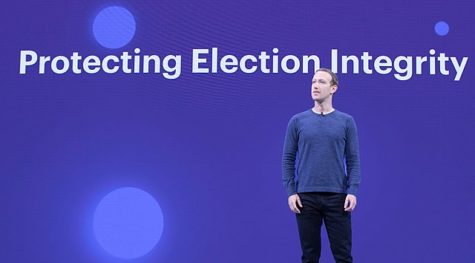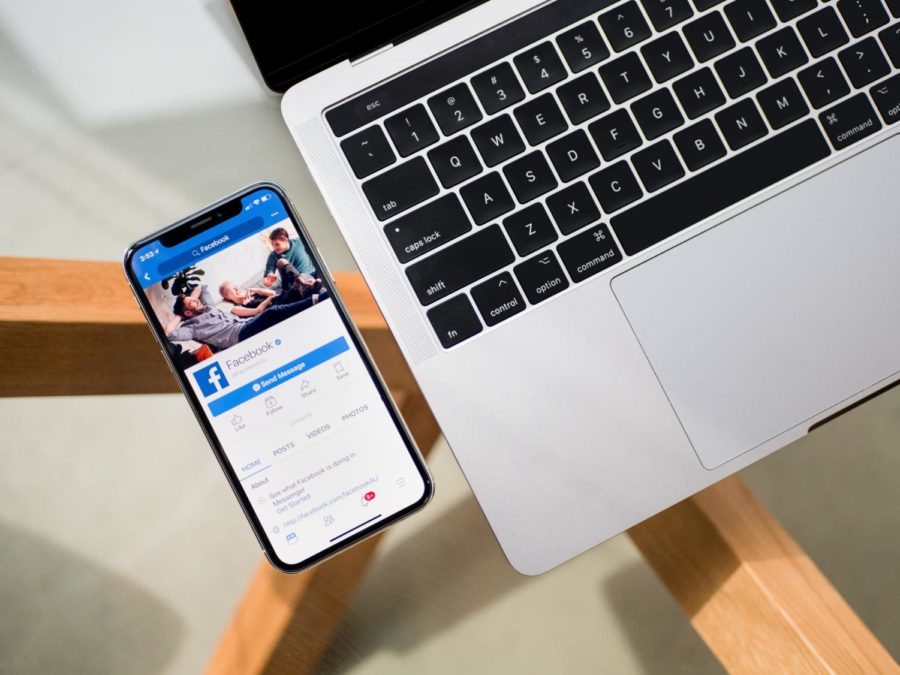Meta’s $725 Million Dollar Settlement
Privacy is a fundamental right guaranteed by the United States Constitution, so how and why does it not seem that way with social media and the internet?
In March of 2018, The New York Times found that Cambridge Analytica, a British political consulting firm, had “improperly obtained data from Facebook to build voter profiles.” They did so by using a “lengthy questionnaire” that first required users to grant them access to their Facebook profiles. Once users gave them access, an app harvested their personal data. The Times reported that in 2014, Cambridge Analytica obtained the private Facebook data of over ten million Americans, constituting the largest leak in Facebook’s history.
This sounded the alarm for both the U.S. and the U.K.: both launched investigations on Cambridge Analytica’s activities in their respective countries, worried about the prospect they could have done more spying and interference. In addition, many government officials were angry at Facebook for facilitating this leak, allowing their users’ data to be entrapped by a third-party company.
Mark Zuckerberg, Facebook’s CEO, was forced to testify in front of Congress about Facebook’s data collection and security. In his testimony to the Senate Committee on Commerce, Science, and Transportation, Zuckerberg claimed that the Cambridge Analytica leak was unforeseen, and was thought to have been resolved internally. Zuckerberg stated that Aleksandr Kogan, a Cambridge University professor, had registered a personality quiz app on Facebook in 2017.
At the time, the app could “share some of their Facebook information as well as some information from their friends whose privacy settings allowed it .” In the future, Facebook would change these regulations to limit how much a company could access information from a person’s contacts. It was then discovered that Kogan had sold the collected data to Cambridge Analytica, to which Facebook apparently responded with a full ban of Kogan’s personality quiz as well as a request for all the data to be immediately removed from their databases.
Facebook claims that through this process, they tried to deal with this leak internally. Cambridge Analytica allegedly said that they had indeed destroyed all data relating to Kogan’s quiz, but the cache of data that the NYT received says otherwise.

Election Fraud
When speaking on the part of Facebook’s involvement with election fraud, Zuckerberg told Congress that his company works intensely with nations and governments to prevent fake accounts on their platform and prevent the spread of misinformation during the election season.
His testimony claimed that he worked with French and German authorities leading up to their general elections to block fake ‘bots’ from flooding election social media accounts or skewing data projections. Zuckerberg also explained that Facebook had deployed new AI technology to prevent ‘malicious election activity’ in France, Italy, and Alabama.
In response, several senators cited Facebook’s inefficiency in preventing Russian interference in the 2016 Presidential election. Zuckerberg claims that Facebook had been following the Internet Research Agency, though he admits they had been slow to take action. The agency is known to work extensively with the Kremlin and share vital intelligence. Additionally, Senator Durbin of Illinois hinted at the growing displeasure in the greater United States, as she said, “I think that may be what this is all about, the limits of your right to privacy. And how much you give away in modern America in the name of, quote, connecting people around the world.”
Reporters at The New York Times reported the testimony to be a success. Although this was Zuckerberg’s first appearance in front of Congress, it was not disorderly. Partisan politics make somewhat of an appearance when discussing the handling of conservative news sites and Russia, but overall, the Congressional hearing’s participants have similar goals: to understand Facebook’s faults.
However, the court of public opinion is quick to judge. Soon after Mr. Zuckerberg’s hearing went live, people all over America began worrying about what Facebook had stored on their personal identities. It’s important to note that the reason Meta, Facebook’s parent company, was created was to rebrand Facebook, allowing it to repress some of the negative attitudes many Americans harbor towards the social media site. In this case, Facebook only renamed its parent company from ‘The Facebook Company” to Meta.
Settlement
In the aftermath of Cambridge Analytica, several lawsuits against Facebook and Meta appeared. Many political figures openly questioned and criticized Facebook’s handling of data, sparking fears of privacy violations across the globe.
In the U.S., one class action lawsuit alleged that Facebook had improperly shared personal data with third parties, breaching personal privacy laws. Almost 5 years after the lawsuit, Meta has settled, agreeing to pay $725 million dollars to Facebook consumers who had created accounts after 2007. However, Meta still claims no wrongdoing in its actions, maintaining that the Cambridge Analytica scandal was the result of a data breach and that Facebook itself had been blindsided by Cambridge Analytica.
The determination concerning this legal battle marks a meaningful achievement in the ongoing dialogue encircling consumer privacy, dossier care, and the role of public news guests in the digital age. The indictment, which had been making its way through the courts for ages, centered around statements that Facebook had inadequately shielded the individual dossier and privacy of allure consumers. Accusations of improper file sharing, pirated access, and carelessness had been levied against the social media giant, chief to severe scrutiny of improper practices.
The agreements of the settlement, attained following prolonged negotiations, contain various key provisions proposed at guaranteeing greater transparency, responsibility, and guardianship for Facebook’s massive consumer base. While the articles of the settlement have not been revealed in their entirety yet, preliminary news desires a substantial assurance in connection with Facebook to fix past mistakes and implement fundamental changes going forward.
Among the ultimate components of the conclusion are bureaucratic rules of a liberated oversight board assigned to monitor Facebook’s dossier practices and solitude guardianship measures. Composed of external masters and solitude advocates, this board will play a crucial duty in guaranteeing agreement and safeguarding consumer rights. This move is seen as a significant departure from Facebook’s former self-regulatory approach.
Furthermore, the conclusion demands Facebook implement stricter file approach controls, stronger privacy backgrounds, and embellished user consent systems. The company invests extensively in electronics and infrastructure to help allure dossier security contracts and hamper unauthorized approaches to consumer facts. This renewed prominence on caring for user solitude is a step towards restoring trust in a podium that has been delayed by controversy.
In the U.K., Parliament feared that Cambridge Analytica’s election activities and allegiances had partially skewed or influenced the results of the 2016 Brexit referendum, where U.K. citizens ultimately voted to leave the E.U. British officials conducted an in-depth investigation into Cambridge Analytica’s affairs, finding that their voter profiles had not been used to the advantage of the ‘Leave campaign,’ which advocated leaving the E.U., although they concluded the collected data was entirely inappropriate. The U.K.’s Information Commissioner fined Facebook 500,000 Euros for their involvement.
If you or anyone you know has used Facebook or owned a Facebook account from 2015 onward, you are entitled to a slice of the settlement. Instructions to claim it can be found on Facebook’s website. The proprietors of the lawsuit have deemed the settlement a success in preventing the Social Media giant from having its way without consequences. Supporters say that hopefully, this shows companies that personal privacy is not to be messed with, and will be dealt with similarly in the future. Others are still waiting for stricter government regulations on companies like Facebook, which they believe have run rampant without any type of real regulation.
In the U.S., one class action lawsuit alleged that Facebook had improperly shared personal data with third parties, breaching personal privacy laws. Almost 5 years after the lawsuit, Meta has settled, agreeing to pay $725 million dollars to Facebook consumers who had created accounts after 2007.
Evan Li is a Features Editor for ‘The Science Survey.' He enjoys writing articles about political news and the sciences, areas that reflect current events...











